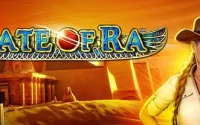pros and cons of the veil of ignorance
Rawls Theory Of The Veil Of Ignorance - 1055 Words | Cram In Nozicks view, once you have ownership rights, you can do pretty much what you want with it, so long as you do not violate anyone elses rights. The argument by these essay is that the social contract does still apply to modern companies. primitive hunters-gatherers?). In Rawlss case, we may wonder whether we can accommodate such concerns by making small changes to his assumptions, or whether more radical changes (or even abandonment of the theory) are required. One broad group who criticise these ideas are the so-called communitarian philosophers, which includes Charles Taylor,[3], Michael Walzer[4], and Alasdair MacIntyre. She points out that you can't make choices on the basis of ignorance. less virtuous than middle America or the rich, and that a moral What is actually going on here is that the method, in the thought experiment, of depriving the deliberating parties of information is a way of building in fairness and impartiality into the deliberation. Secresy is therefore in general suitable in elections". Imagine that you find yourself behind the Veil of Ignorance. The central criticism we consider here concerns the motivation of Rawlss overall project. The veil of ignorance clouds perception and eliminates the possibility of bias. You might want to make sure that your life will go well. so considering things with a veil seems needless. Even if Rawls is right that people behind the Veil would agree on his two principles, communitarians think that the hypothetical agreement ignores much that is important. 22nd - 22st The veil of ignorance is a concept that John According to Rawls, [1], working out what justice requires demands that we think as if we are building society from the ground up, in a way that everyone who is reasonable can accept. The Veil Of Ignorance And Their Effect On Society. Rather, they must choose from a menu of views taken from traditional Western philosophy on what justice involves. [/footnote], Liberation, not Banking On Attitude and Practice. For instance, it might be that by allowing inequalities, we motivate people to work harder, generating more Primary Goods overall. This means that an action has to be consider as if you did not know how it would affect you. The idea of distributive justice is piffle. According to the liberty principle, the social contract should try to ensure that everyone enjoys the maximum liberty possible without intruding upon the freedom of others. A Theory of Justice - Wikipedia He continued to write "The Law of Peoples" in 1999. There may be a small number of freaks who would support an unjust system, because they were born lacking this basic sense of justice; but we should just disregard them. I will outline Rawlss justification for the Veil of Ignorance, raise some potential challenges for the conclusions he thinks people will reach from behind it, and lastly consider three criticisms of the Veil of Ignorance as a theoretical device. And fairness, as Rawls and many others believe, is the essence of justice. In brief, the claim from scholars of race and of gender is that Rawlss abstract Veil of Ignorance ends up ignoring much that is relevant to justice. Certainly, it is a plausible worry that what justice requires may depend in part on the values of the society in question. As such, the knowledge that makes you different from other people is all in your ideas, not in your genes. But to answer your second question, Rawls himself updated this argument. While it is true that individuals behind the Veil do not know about their defining features, Rawls does not think that real people are like this. The veil of ignorance is precisely that of no prior knowledge of your place in society, politically, financially, socially or intellectually. As with any influential philosopher, Rawls has been the subject of much criticism and disagreement. from hereditariainism and so on? Environmental Ethics and Climate Change, 29. The idea is that social justice will be whatever reasonable people would agree to in such a situation. Rawls isn't really interested in what people 'deserve' through their deeds (for that you want Robert Nozick) or through some idea of their innate virtue, but rather in having a social system that isn't predestined to militate against the life chances of particular people and groups. History shows us the government programs generally do not work. . Article 1. Just as the state has no right to force you to do things with your body that you dont want to do, it also has no right to force you to do things with your other property, like giving it away to the less fortunate. Learn more about how Pressbooks supports open publishing practices. According to Rawls', the veil of ignorance is a device that can be used to help a person determine whether something is moral. Rawls calls these Primary Goods. Nozick thinks we will all agree that it would be wrong to force you to work if you didnt want to. You do not know your gender, race, wealth, or facts about your personal strengths and weaknesses, such as their intelligence or physical prowess. (What are we? The Veil of Ignorance is a way of working out the basic institutions and structures of a just society. When we are thinking about justice, Rawls suggests that we imagine that we do not know many of the facts both about ourselves and the society we currently live in that typically influence our thinking in biased ways. Probably the most famous example of this comes from Robert Nozick. Why does the narrative change back and forth between "Isabella" and "Mrs. John Knightley" to refer to Emma's sister? They include things like money and other resources; basic rights and freedoms; and finally, the social bases of self-respect: the things you need to feel like an equal member of society. Ignorance has its pros and cons. Thus, people will never create an authoritarian society as the odds to be in the unfavorable position are too high. It's not really even a social contract in that sense, as there is no agreement. In John Rawls' A Theory of Justice, he argues that morally, society should be constructed politically as if we were all behind a veil of ignorance; that is, the rules and precepts of society should be constructed as if we had no a priori knowledge of our future wealth, talents, and social status, and could be placed in any other person's societal :-) But the point that it eliminates otherness is interesting. Nonetheless, this conclusion is consistent with recognising two mistakes in making use of the Veil of Ignorance. Taking stuff without the owner's consent and handing it out to people who are deemed deserving for whatever reason sabotages this process. The great majority of humans share an intuitive sense of justice. The veil of ignorance and the impact it has on society helps to answer the question at hand: should political power should seek to benefit society even if this may harm or disadvantage individuals? Is it what people would agree to behind the Veil of Ignorance? They provide a defence against any disadvantages at birth or poor fortune in our lives. "Veil of Ignorance" 5. We are of course not wrong in perceiving that the effects of the processes of a free society on the fates of the different individuals are not distributed according to some recognizable principle of justice. That meant, among other things, that he thought the state should be neutral between different views about value. 22st The veil of ignorance is a concept that John Rawls has brought to life for Philosophers to ponder and discuss the pros and cons of the idea. All people are biased by their situations, so how can people agree on a social contract to govern how the world should work. He thinks that if we work out what those institutions would look like in a perfectly just society, using the Veil of Ignorance, we can then start to move our current society in that direction. As with any influential philosopher, Rawls has been the subject of much criticism and disagreement. Publicity (Stanford Encyclopedia of Philosophy/Spring 2013 Edition) John Rawls' "Veil of Ignorance" Method Essay Example | GraduateWay The reason that the least well off member gets benefited is that it is argued that under the veil of ignorance people will act as if they were risk-averse. First of all, I just don't believe people are exchangeable in this fashion, because of hereditarian considerations; the exchanging of places before hand would not, in many cases, would not lead to a significant "shake-up" of society, if meritocracy is truly operating so considering things with a veil seems needless. A description of this and other criticisms can be found here. Communitarians will object that the Veil of Ignorance goes beyond this protection, and rules out the possibility of different ideas of justice, informed by local values. However, what he does believe is that every individual should be taken to have equal moral status i.e. If you make something, or work for money, that thing is yours and nobody elses. Of course, he's writing from the perspective of an economist, discussing the market system and its external effects, but that's still applicable to Rawlsian theory on a number of levels. [/footnote], Putting this into Practice: The Doctrine of Double Effect(DDE), Acting for the Sake of Duty and Acting in Accordance with Duty, The First Formulation of the Categorical Imperative, Second Formulation of the Categorical Imperative, The Third Formulation of the Categorical Imperative and Summary, Voluntary Actions, Involuntary Actions and MoralResponsibility, Objections to Virtue Ethics and Responses. The only blame implicit in those complaints is that we tolerate a system in which each is allowed to choose his occupation and therefore nobody can have the power and the duty to see that the results correspond to our wishes. Whether there is an eternal law? By intentionally ignoring these facts, Rawls hoped that we would be able to avoid the biases that might otherwise come into a group decision. Finally, if critical theory is your bent, you can find some good material from feminist authors to use as a critique of Rawls. If you make something, or work for money, that thing is yours and nobody elses. Original position - Wikipedia 58 animated videos - 1 to 2 minutes each - define key ethics terms and concepts. Which liberal philosophers have advanced it? Some of his assumptions aim to turn the conflicts that arise between self-interested people into a fair decision procedure. Fair equality of opportunity says that positions which bring unequal payoffs must be open to people of equal talents and equal willingness to use them on an equal basis. In both cases, we cannot simply redistribute these goods to fit our pattern, because people have rights. The talents you choose to develop, and the amount of effort you put in, are heavily affected by education; so it might seem unfair to judge people if they have had very different educational experiences. In addition, people behind the Veil are supposed to come up with a view of how society should be structured while knowing almost nothing about themselves, and their lives. However, one might challenge Rawls by disputing the fairness or intuitiveness of one or more of his assumptions. Secondly, acknowledging the importance of the Veil of Ignorance does not mean that Rawls, and later philosophers, are right to have established an order of priority, where we first abstractly establish a view of ideal justice, and only then move on to non-ideal justice. A rational person behind the Veil might want to try to find a way to give a special place to such values, while protecting dissenters. Society has simply become the new deity to which we complain and clamour for redress if it does not fulfil [sic] the expectations it has created. First of all, I just don't believe people are exchangeable in this yes i agree. It is a purely hypothetical idea: our job in thinking about justice is to imagine that we are designing a society from scratch. If two people are just as capable of doing a job, and just as hardworking and willing to apply themselves, neither should have a greater chance of securing the position because they are wealthier, or because of their race or religion. Eight short videos present the 7 principles of values-driven leadership from Gentile's Giving Voice to Values. Answer (1 of 5): The problem is that under the veil of ignorance, you have to make a choice without even knowing the values you are defending (you could be a Christian, an atheist, a Muslim, a libertarian, a communist, etc.). What are prominent attacks of Rawls' "veil of ignorance" argument


